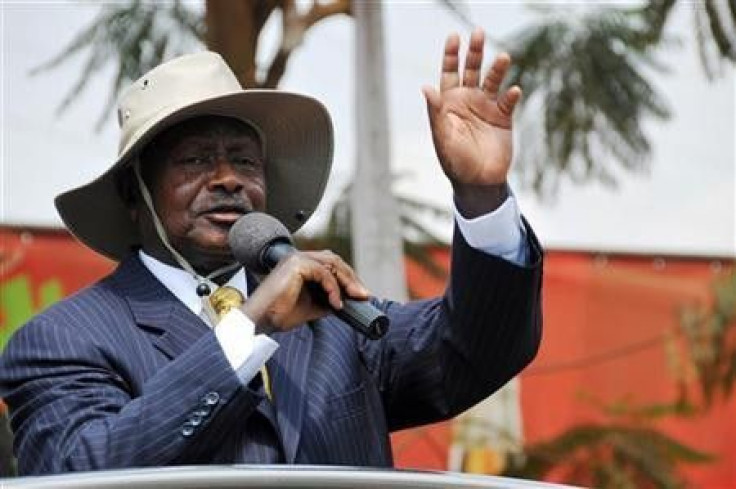Uganda president snubs call for Tullow deal delay

Uganda President Yoweri Museveni has indicated to parliament he is not likely to delay approval of Tullow Oil's long proposed partnership with Total and CNOOC further, because it would diminish his government's credibility in future negotiations.
Last year, UK explorer Tullow agreed to sell China's CNOOC and France's Total one third of its Uganda stakes each for $2.9 billion.
Reneging on the old agreements or freezing ongoing agreements would be a disaster for Uganda, Museveni wrote in a letter to Rebecca Kadaga, speaker of parliament, dated November 4 and seen by Reuters on Tuesday.
It would undermine the credibility of the government in future negotiations and could lead to costly litigation for breach of contracts, the veteran leader added.
The letter said he expected the terms of future oil deals with petroleum firms to be more favourable towards the region's third-biggest economy.
The exploration firm has been awaiting final government approval for the partnership, which would pave the way for a $10 billion investment to develop the east African country's oil fields.
Parliament last month passed 10 resolutions relating to the oil sector, including asking the government to delay completion of Tullow's proposed sale of the stakes and putting a moratorium on new oil deals until all necessary laws are in place.
Parliamentary resolutions are non-binding on the executive branch of Uganda's government.
October's vote was a sign of growing frustration among lawmakers, however, over the lack of transparency and accountability in the burgeoning oil sector.
It was clear that derailing Tullow's farmdown was going to reflect terribly on the country, said Angelo Izama, director of Fanaka Kwawote (FK), a Kampala based energy think-tank.
Instead they should probably have demanded the terms of the deal be carefully scrutinised to ensure they favour the country, he said.
Last month parliament also established a committee to probe reports that three ministers took bribes in oil transactions.
The seven-member committee is expected to report back its findings to the house within three months.
© Copyright Thomson Reuters 2024. All rights reserved.











